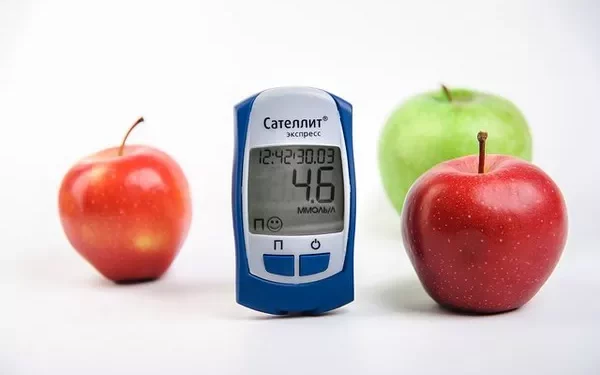Hypoglycemia, a condition characterized by abnormally low blood glucose levels, is a significant concern for individuals with diabetes, as well as those without. It can lead to a range of symptoms, from mild discomfort to severe neurological impairment. Hypoglycemia is generally classified into two main types: type A (or reactive hypoglycemia) and type B (or fasting hypoglycemia). This article exploresthe differences between these two types, their causes, clinical manifestations, diagnostic approaches, and management strategies.
What is Hypoglycemia?
Hypoglycemia occurs when blood glucose levels drop below the normal range, typically below 70 mg/dL (3.9 mmol/L). Glucose is a primary energy source for the body, particularly the brain, which relies almost exclusively on glucose for energy. When glucose levels fall too low, the body and brain cannot function properly, leading to a variety of symptoms and potential complications.
Type A Hypoglycemia (Reactive Hypoglycemia)
Definition and Overview
Type A hypoglycemia, also known as reactive or postprandial hypoglycemia, occurs within a few hours after eating a meal, especially one high in carbohydrates. It is characterized by a rapid drop in blood glucose levels following an initial spike after eating.
Pathophysiology
The primary mechanism underlying reactive hypoglycemia involves an exaggerated insulin response to a carbohydrate-rich meal. After consuming such a meal, blood glucose levels rise, triggering the pancreas to release insulin. In individuals with reactive hypoglycemia, the insulin response is excessive, leading to a rapid and significant decrease in blood glucose levels.
Causes
Several factors can contribute to the development of type A hypoglycemia:
Dietary Habits: Consuming meals high in refined carbohydrates and sugars can lead to sharp spikes and subsequent drops in blood glucose levels.
Impaired Glucose Tolerance: Individuals with early-stage diabetes or prediabetes may experience exaggerated insulin responses to carbohydrate intake.
Gastrointestinal Surgery: Procedures such as gastric bypass can alter the normal digestive process, leading to rapid glucose absorption and subsequent hypoglycemia.
Hormonal Imbalances: Conditions affecting hormones that regulate blood glucose, such as cortisol or growth hormone deficiencies, can contribute to reactive hypoglycemia.
Clinical Manifestations
Symptoms of type A hypoglycemia typically appear within 2-4 hours after a meal and may include:
- Shakiness
- Sweating
- Palpitations
- Hunger
- Fatigue
- Anxiety
- Irritability
- Confusion
- Blurred vision
These symptoms result from the body’s attempt to raise blood glucose levels through the release of counter-regulatory hormones, such as glucagon and adrenaline.
Diagnosis
The diagnosis of reactive hypoglycemia involves a thorough medical history, dietary assessment, and laboratory tests. Key diagnostic approaches include:
Blood Glucose Monitoring: Measuring blood glucose levels during symptomatic episodes can confirm hypoglycemia.
Mixed-Meal Tolerance Test (MMTT): This test involves consuming a meal with a known carbohydrate content and monitoring blood glucose levels over several hours to identify hypoglycemia.
Continuous Glucose Monitoring (CGM): CGM provides continuous data on blood glucose levels, helping to identify patterns and timing of hypoglycemic episodes.
Management
The management of type A hypoglycemia focuses on dietary modifications and lifestyle changes:
Frequent, Small Meals: Eating smaller, more frequent meals can help maintain stable blood glucose levels.
Balanced Macronutrients: Including a balance of carbohydrates, proteins, and fats in meals can prevent rapid spikes and drops in blood glucose.
Avoiding Refined Carbohydrates: Reducing intake of refined sugars and high-glycemic index foods can minimize insulin surges.
Regular Physical Activity: Exercise can improve insulin sensitivity and overall glucose metabolism.
Type B Hypoglycemia (Fasting Hypoglycemia)
Definition and Overview
Type B hypoglycemia, also known as fasting hypoglycemia, occurs when blood glucose levels drop during periods of fasting or prolonged periods without food. Unlike reactive hypoglycemia, fasting hypoglycemia is not directly related to recent food intake.
Pathophysiology
Fasting hypoglycemia results from an imbalance between glucose production and glucose utilization in the body. During fasting, the liver maintains blood glucose levels by producing glucose through glycogenolysis and gluconeogenesis. In type B hypoglycemia, these processes are disrupted, leading to inadequate glucose availability.
Causes
Fasting hypoglycemia can be caused by various conditions and factors:
Endocrine Disorders: Conditions such as Addison’s disease, growth hormone deficiency, and adrenal insufficiency can impair glucose production.
Insulinomas: These are rare pancreatic tumors that secrete excess insulin, leading to hypoglycemia.
Liver Diseases: Liver dysfunction or failure can impair glycogen storage and glucose production.
Renal Failure: Chronic kidney disease can affect glucose metabolism and clearance.
Medications: Certain medications, such as insulin or sulfonylureas, can cause hypoglycemia, particularly in individuals with diabetes.
Alcohol Consumption: Excessive alcohol intake can inhibit gluconeogenesis, leading to hypoglycemia.
Clinical Manifestations
Symptoms of fasting hypoglycemia may occur during periods of fasting, such as overnight or between meals, and can include:
- Weakness
- Dizziness
- Tremors
- Sweating
- Palpitations
- Hunger
- Headache
- Confusion
- Seizures
- Loss of consciousness
These symptoms are due to the body’s attempt to raise blood glucose levels through the release of counter-regulatory hormones and the activation of the sympathetic nervous system.
Diagnosis
Diagnosing fasting hypoglycemia involves identifying the underlying cause and confirming low blood glucose levels. Key diagnostic approaches include:
Blood Glucose Monitoring: Measuring blood glucose levels during symptomatic episodes can confirm hypoglycemia.
Prolonged Fasting Test: This test involves monitored fasting to observe blood glucose levels and identify the onset of hypoglycemia.
Hormonal and Metabolic Tests: Assessing levels of insulin, cortisol, and other hormones can help identify endocrine causes.
Imaging Studies: Imaging, such as CT or MRI, can detect insulinomas or other tumors.
Management
The management of type B hypoglycemia depends on the underlying cause:
Dietary Modifications: Frequent small meals and snacks can help maintain stable blood glucose levels.
Medications: Adjusting or discontinuing medications that cause hypoglycemia may be necessary.
Surgery: Surgical removal of insulinomas or other tumors may be required.
Hormone Replacement Therapy: Treating underlying endocrine disorders with hormone replacement can improve glucose metabolism.
Alcohol Avoidance: Reducing or avoiding alcohol consumption can prevent hypoglycemic episodes related to alcohol intake.
Comparing Type A and Type B Hypoglycemia
While both type A and type B hypoglycemia involve low blood glucose levels, their underlying mechanisms, triggers, and management strategies differ significantly.
Timing: Type A hypoglycemia occurs after meals, whereas type B hypoglycemia occurs during fasting.
Causes: Reactive hypoglycemia is primarily related to exaggerated insulin responses to carbohydrate intake, while fasting hypoglycemia is often due to endocrine disorders, liver disease, or tumors.
Symptoms: Both types share similar symptoms, such as shakiness, sweating, and confusion, but the timing and context of these symptoms differ.
Management: Dietary modifications are crucial for both types, but type B hypoglycemia may require additional treatments, such as surgery or hormone replacement.
See also: Why Can Hypoglycemia Cause Death?
Conclusion
Hypoglycemia, whether reactive (type A) or fasting (type B), presents a significant challenge for individuals and healthcare providers. Understanding the distinct mechanisms, causes, and clinical manifestations of each type is essential for accurate diagnosis and effective management. Through dietary modifications, lifestyle changes, and appropriate medical interventions, individuals with hypoglycemia can achieve better blood glucose control and improve their quality of life. Ongoing research and advancements in glucose monitoring and treatment options will continue to enhance the care of those affected by this complex condition.
Related topics:
What are the Causes of Sudden Hypoglycemia



























